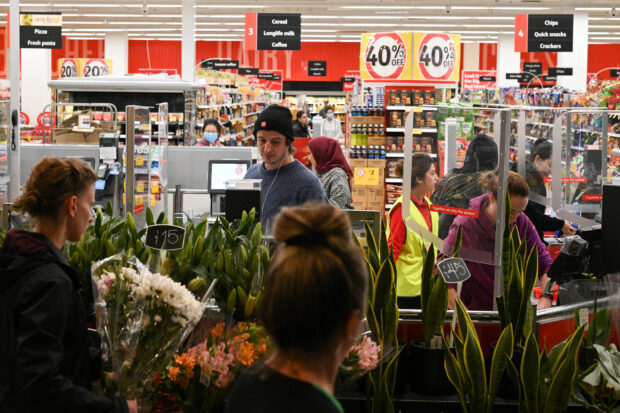Australia’s consumer inflation hits 13-month low, adding to rate pause case

SYDNEY – Australia’s consumer inflation slowed to a 13-month low in May, driven by a sharp pullback in fuel, while a measure of core inflation also cooled in a sign interest rates might not have to rise again in July.
Data from the Australian Bureau of Statistics on Wednesday showed its monthly consumer price index (CPI) rose 5.6 percent in the year to May, marking the smallest increase since April last year.
That was down from 6.8 percent the previous month and well below market forecasts of 6.1 percent.
On a monthly basis, CPI fell 0.4 percent in May. The core trimmed mean measure of CPI rose by an annual 6.1 percent, a seven-month low and again down from 6.7 percent in April.
Investors responded by pushing the Australian dollar down 0.8 percent to $0.6632, while markets moved to price in a lower chance of a hike in July, with a 30-percent probability, and wagered that rates are more likely to peak at 4.35 percent, rather than 4.6 percent.
The Reserve Bank of Australia has raised interest rates by a whopping 400 basis points to 4.1 percent since May last year, but the upside risks to inflation meant the central bank has adopted a hawkish tone in recent months, warning that more rate rises may be required.
Australia’s central bank says hike this week due to inflation risks, warns more may come
“The number is at the very lower end of the range of economists’ expectations which ranged from 6.9 percent to 5.6 percent and is soft enough by a good margin to see the RBA halt its series of rate hikes in July and possibly beyond,” said Tony Sycamore, market analyst at IG.
Wednesday’s data showed the most significant drivers were an 8.4 percent jump in housing and a 7.9- percent increase in food and non-alcoholic beverages. Offseting the rise was an 8-percent drop in automotive fuel prices.
Working against the odds of a pause next week, a closely watched measure of prices excluding volatiles and holiday travel slowed just marginally to 6.4 percent from 6.5 percent, and a blockbuster jobs report had raised stakes for further rate rises.
Australian consumer mood turns sour in June after latest rate hike
“With the labor market still very tight, unit labor cost growth surging and the housing market bouncing back with a vengeance, we suspect that the Bank will press ahead with another rate hike next week,” said Marcel Thieliant, a senior economist at Capital Economics.